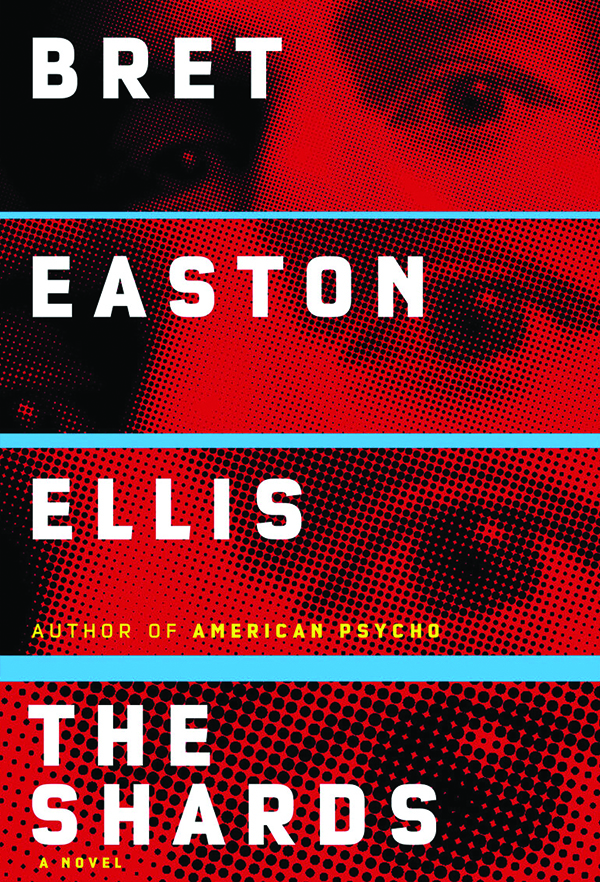
Bret Easton Ellis turns the screw
Micah Mattix
The Shards is Bret Easton Ellis’s first novel since Imperial Bedrooms was published 13 years ago. In it, a 17-year-old Ellis, who both is and isn’t Ellis himself, tells the story of his senior year at Buckley School in Los Angeles and of the arrival of a mysterious new student from Chicago with a murky past — an arrival that coincides with a series of horrific murders committed by someone called the Trawler and his cultish followers.

The story is presented as a fictional account of the very real but “terrible things that befell” Ellis and his friends. He tells us that he attempted to write the novel twice before, once a year after the events and once in 2006, which sent him to the hospital with a panic attack. But it “wasn’t until 2020 that I felt I could begin The Shards” and “couldn’t ignore it any longer.” Yet, like Clay in Imperial Bedrooms and Patrick Bateman in American Psycho, Bret, the narrator of The Shards, can’t be completely trusted. The question of who’s who and what’s what drives the bloody story forward.
It is Ellis’s longest novel to date, coming in at just under 600 pages compared to American Psycho’s and Glamorama’s 400. And it is different from his previous works in subtle ways. Instead of the flat narrative voice of Clay in both Less Than Zero and Imperial Bedrooms, Bret has a searching earnestness that gives him a complexity that isn’t merely the result of the novel’s structure, as is the case with Bateman in American Psycho. Bret isn’t a nihilist or a masochist, though Ellis expertly sows a few doubts, as when Bret becomes aroused while looking at pictures of the corpse of a former lover.
The premise of the novel, a writer revisiting the shocking events of his past that have haunted him ever since, is hardly original. Yet it gives The Shards a nostalgic uncanniness that Ellis’s other novels don’t possess. Like Henry James’s smash hit from 1898, The Turn of the Screw, released in Collier’s Weekly, Ellis released his murder story in serial, though as a podcast every other week leading up to the publication of the book.
Yet, for all its differences, The Shards is a continuation of Ellis’s exploration in his other novels of the flatness of contemporary American life — from which we can only escape momentarily. In Less Than Zero and the tedious Rules of Attraction, for example, Ellis’s characters participate in the same ritual every day — wake up, smoke a joint or take a Valium, talk on the phone, go to a party, have a drink, do some coke, take someone home. At the end of Less Than Zero, Clay’s sisters “lie beneath the darkening sky and play a game in which they pretend to be dead.” This is preparatory play for when they become dead in other ways as adults. Violence is a way to break out of this flatness. So, too, perhaps, is starting a cult or joining a church, but Ellis never presents these as realistic possibilities.
The Shards is less minimalist than Less Than Zero, but the same cycle — drugs, parties, more drugs, sex, blood — runs its course page after page. It’s oddly mesmerizing in Less Than Zero but less so in his other novels. The experience of reading an Ellis novel is an experience worth having, but perhaps only once. Little is added by repetition, except in the case of American Psycho and The Shards.
The Shards is also occasionally self-indulgent, though only occasionally. In one scene, Bret’s classmates listen “rapt with horror” at his account of certain events, and he becomes wildly but briefly popular before they reject him completely: “I quickly became a pariah,” he tells us. Ellis’s dedication for The Shards reads: “For no one.” Let the reader understand.
One thing that Ellis examines in a more concentrated and interesting way in The Shards, though this has always been an interest for him, is our ability to know others and ourselves. It has become a cliche that reading about the lives of others improves our capacity for empathy — that stories help us to understand ourselves and our world. Ellis, however, has little patience for “tired slogans” about bringing people together, as Bret tells us in an early chapter, and one thing The Shards shows us is how stories, particularly the ones we tell ourselves, can be delusional and divisive — even violent.
At one point in the novel, Bret tells us that he tries to get his “narrative” of what is happening to him and his friends “back on the track” because he “wanted it to run on.” Why? Because of how “thrilling” it had become to him, he tells us elsewhere. And because he’s attached to it.
The decision to write The Shards from the perspective of a middle-aged novelist recollecting a traumatic experience as a 17-year-old high school student working on his first novel makes it unclear at times which Bret is speaking. That our narrator is not always reliable further complicates Ellis’s presentation of Bret.
Bret is constantly making connections, constantly constructing a story as “a writer.” But these connections become increasingly suspicious. “I made this connection,” Bret tells us at one point, “and though it was tenuous I was haunted by it. And since I felt so alone that day it became a friend.” Telling a story sets down a particular way of seeing the world, and the perceived incontrovertible fact of it is comforting. But what if it’s terribly wrong?
At times, Ellis will preface or reveal too much at the close of a chapter, which has the effect of taking the wind out of the plot’s sails. This may be a result of the novel’s earlier iteration as a podcast.
Mostly, however, the novel moves along at a readerly clip. The characters have more depth than in any of his previous works, and murder and Angelenos aside, it possesses a kind of warmth that is markedly different from American Psycho’s cold relentlessness. It is, perhaps, his best novel. If you finished American Psycho and are wondering if you should give The Shards a try, you should.
Micah Mattix is a professor of English at Regent University.
